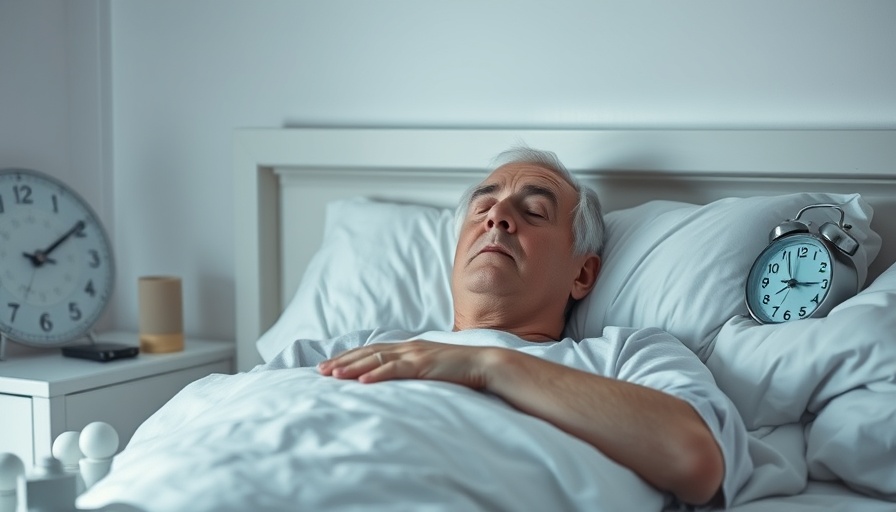Protecting Amazon Forests is Essential for Human Health: Study Insights
0 Views
0 Comments

Discover How Zeaxanthin in Vegetables Could Enhance Cancer Immunity
Update Revolutionary Effects of Zeaxanthin on Cancer Immunity Recent research highlights a critical breakthrough in cancer treatment: zeaxanthin, a nutrient predominantly found in leafy greens and corn, may bolster the body's immune response against cancer. Traditionally known for its role in eye health, zeaxanthin is emerging as a potent ally in enhancing the efficacy of immunotherapy treatments, particularly for aggressive cancers like melanoma and colon tumors. In a study published in the Cell Reports Medicine, researchers observed that zeaxanthin significantly enhances the capabilities of CD8+ T cells, the immune system's soldiers against tumors. Unveiling the Mechanism: How Zeaxanthin Works The study reveals that zeaxanthin improves the function of T-cell receptors, therefore amplifying the signals inside the T cells. This enhanced functionality leads to increased production of cytokines, which are crucial in the immune response against cancer. Additionally, when zeaxanthin was administered alongside immunotherapy in mice, the growth of tumors was notably reduced compared to immunotherapy alone. The implications are profound; if zeaxanthin performs similarly in human clinical trials, it could redefine how we tackle cancer therapies. The Promise of Nutrition in Cancer Care While pharmaceutical options like FDA drug approvals and medication safety for pregnancy remain crucial in cancer treatment, natural alternatives—such as zeaxanthin—offer a promising adjunct strategy. Advocating for increased consumption of vegetables rich in this carotenoid might not only support eye health but also potentially play a significant role in cancer prevention and treatment. This finding invites further exploration into how nutritional therapy could marry with traditional treatment methods, providing a holistic approach to cancer care. Next Steps in Cancer Research As with all health interventions, understanding potential drug interactions with zeaxanthin is essential. Current findings warrant further clinical trials to confirm efficacy and safety for cancer patients. For those interested in improving their health, talking to a healthcare professional about the use of nutrient-based therapies may provide insights into better lifestyle choices and supplemental strategies. If you’re eager to learn more about how dietary choices can impact your health, contact us for more details!

How Chronic Insomnia Might Increase Your Dementia Risk
Update Insomnia and Brain Health: The Hidden RisksIn a recent study published in the journal Neurology, researchers unveiled a concerning link between chronic insomnia and an increased risk of dementia among seniors. The study showed that individuals aged 70 and older who suffered from insomnia—a condition defined as difficulty sleeping at least three days a week for three months—faced a staggering 40% greater risk of cognitive decline or developing dementia compared to their well-rested peers.The potential implications of this study are significant. Chronic insomnia translates to an equivalent of approximately 3.5 years of accelerated brain aging, highlighting the importance of adequate sleep for maintaining cognitive health as we age. Dr. Diego Carvalho, the lead researcher from the Mayo Clinic, emphasized that insomnia poses serious risks beyond mere fatigue—it may signal early stages of cognitive impairment.What the Study RevealedThe study monitored 2,750 participants, all initially in good cognitive health, over a period of more than five years. Among those diagnosed with insomnia, about 14% developed mild cognitive impairment or dementia, compared to 10% of those without insomnia—a difference that underscores the relationship between sleep quality and brain health. Initial tests indicated that those with poor sleep reported lower cognitive performance and exhibited signs of brain aging, including damaged brain tissue and amyloid plaques, which are often associated with Alzheimer’s disease.Broader Implications for HealthWhat makes these findings more alarming is the indication that the cognitive decline observed in insomniacs may mirror changes seen in those genetically predisposed to Alzheimer’s, particularly in individuals carrying the APOE4 gene. Dr. Carvalho noted that insomnia may impact the brain in various ways, not only through the presence of amyloid plaques but also affecting the small vessels responsible for brain blood supply.Steps Towards Better SleepGiven these findings, it’s crucial for individuals, especially seniors, to recognize the potential health threats posed by chronic insomnia. Effective strategies to enhance sleep include establishing a consistent sleep schedule, creating a calming bedtime routine, and seeking medical guidance when needed—be it through therapy, over-the-counter medications, or natural remedies.Contact Us for More InformationAs research continues to reveal the complex interplay between sleep and cognitive health, staying informed is imperative. If you want to learn more about safeguarding your brain health and exploring potential health remedies, please contact us for more details.

How Exercise Boosts Men's Mental and Sexual Health: New Survey Insights
Update Unlocking Men's Health: The Overlooked Benefits of Regular ExerciseA recent survey from the Cleveland Clinic reveals a surprising connection between exercise and various aspects of men's health. While most men acknowledge the mental and sexual health benefits associated with regular physical activity, a significant portion still fails to make exercise a habit. The survey, conducted among 1,140 men aged 18 and older, found that about 30% do not engage in regular physical activity. Interestingly, 61% of those who do exercise report that their physical fitness directly correlates with their sex drive and sexual performance.Understanding the Mental and Physical LinkDr. Petar Bajic of the Cleveland Clinic emphasizes the interconnectedness of mental and sexual health. According to him, neglecting one area can adversely affect the others. The survey showed that 81% of men experience lower energy and fatigue when they skip workouts, while 47% report heightened stress or irritability. Furthermore, 33% noticed a decrease in their mental well-being when they weren't physically active. This highlights the importance of prioritizing both exercise and mental health discussions among men.A Wake-Up Call on Sexual Health AwarenessAlarmingly, many men are unaware that sexual health issues can signal serious underlying conditions. The survey revealed that 72% do not realize that low sexual desire can be a warning sign of heart disease, while 74% were uninformed of its connection to uncontrolled diabetes. Moreover, 65% had no idea that factors like high blood pressure could contribute to these sexual health challenges. Increasing awareness is crucial for encouraging men to seek the necessary help and screenings.Breaking Stigmas and Encouraging Open DialogueOne of the core objectives of the survey is to challenge the taboo surrounding men’s health conversations. About 66% of respondents indicated they would seek help from a mental health professional regarding anxiety, stress, or insecurity about their appearance. The MENtion IT campaign by the Cleveland Clinic aims to foster an environment where men can openly discuss their health concerns without stigma. This proactive approach could lead to better health outcomes as men learn to address both their physical and mental health.If you're keen on optimizing your health journey, regular exercise is a fundamental step you can take. Exercise not only boosts your mental health but also enhances sexual health and overall well-being. Don't underestimate the power of a good workout routine!
 Add Row
Add Row  Add
Add 

Write A Comment